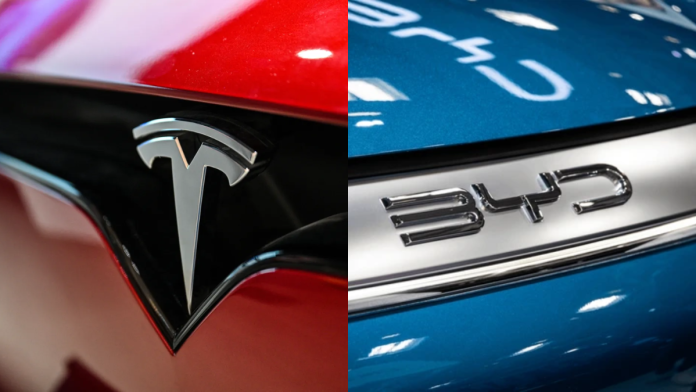Mexico has announced a major step that could shake up its fast-growing electric vehicle market. The government is planning to impose a 50% tariff on cars imported from China and other countries without a free trade deal. This sharp increase is a huge leap, considering tariffs on Chinese-made electric vehicles went from 0% to 15% earlier this year and now may jump all the way to 50%.
This sudden change targets one of the most competitive areas in the auto sector—electric vehicles. It comes as Mexico tries to balance its own interests while navigating international trade pressures. The new tariff does not affect traditional U.S. carmakers that already have factories in Mexico, giving them an advantage over rivals like Tesla and BYD.
The measure is seen as one of the toughest actions taken so far in North America against Chinese-made cars. If approved, it could transform the way cars are sold in Mexico and potentially limit choices for buyers who have embraced new electric brands over the past two years.
India-US trade talks resume after steep tariffs linked to Russian oil purchases
Why Tesla and BYD Are the Biggest Targets
Tesla and BYD are the two automakers most exposed to this change. Tesla currently imports all of its Model 3 and Model Y cars sold in Mexico from its factory in Shanghai. Since mid-2023, those Chinese-made vehicles have been the backbone of Tesla’s sales in the country. The company had earlier announced plans to build a factory in northern Mexico but paused the project, citing economic concerns. That decision now leaves Tesla without a safety net.
BYD faces an even bigger challenge. The Chinese brand entered Mexico only at the end of 2023, yet it quickly became a leader. In 2024, BYD sold around 40,000 cars in the country, making up nearly half of all electric and plug-in vehicles sold. This explosive growth happened even without a local production plant. Plans to build a factory in Mexico were canceled earlier this year, partly due to fears of damaging trade relations with the United States.
Now, without a Mexican base, every single BYD car entering the country would be hit by the proposed 50% tariff. This move could drastically raise prices, cut into sales, and slow the momentum the company has enjoyed.
Meanwhile, traditional automakers like Ford, General Motors, and Stellantis are not affected in the same way. Thanks to a rule dating back to 2003, they can import cars from countries without free trade deals if they already have production plants in Mexico. This gives them a unique advantage and shields them from the sharp rise in costs that Tesla and BYD will now face.
$45 billion vanishes: BYD’s stock crash sparks global alarm over China’s EV dreams
Global Reactions and Political Tensions
The tariff announcement has triggered strong reactions. China has urged Mexico to reconsider, warning that such a move would harm Mexico’s business environment and create uncertainty for global investors. The tension highlights the broader trade rivalry between the United States and China, with Mexico caught in the middle as a key production hub in North America.
Industry experts suggest that U.S. policymakers may welcome the tariff, as it makes life harder for Chinese brands like BYD, which have been rapidly gaining ground. For Washington, seeing Mexico align its trade policies with U.S. interests could be viewed positively, especially as American automakers seek to maintain their lead in the electric vehicle race.
Mexico’s Congress must still approve the proposed law, but the ruling party holds a strong majority, making it more likely to pass. If it does, it will mark one of the most dramatic shifts in Mexico’s auto industry in recent years.
For now, Tesla and BYD remain the companies most directly hit. Both have relied on imports from China to supply Mexico’s growing demand for electric vehicles. With a 50% tariff looming, their positions in one of the region’s most dynamic markets suddenly look much more uncertain.


